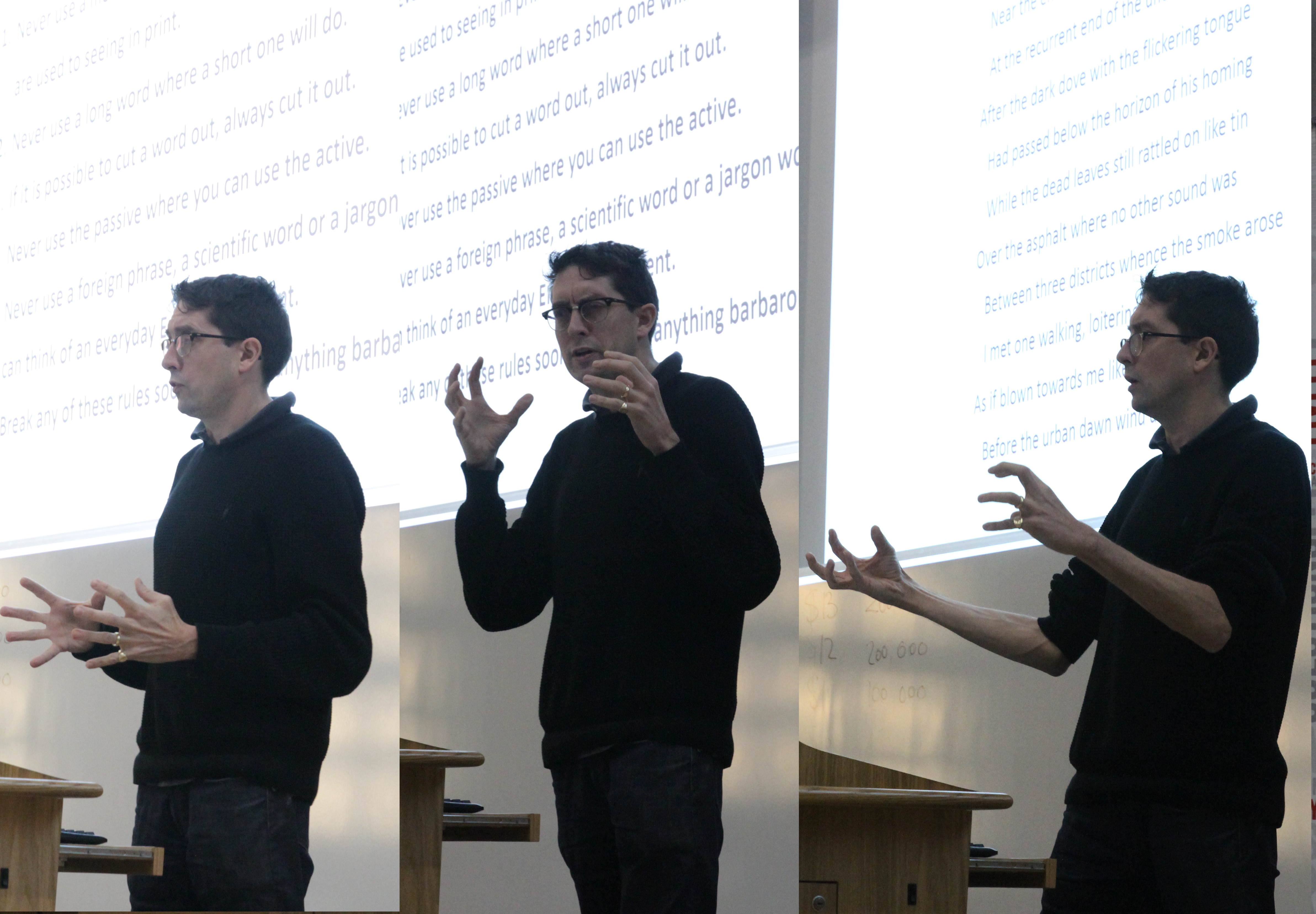Social media and digital executives in newsrooms already have a tough job connecting their content to consumers via social media, but Facebook’s proposed changes in the algorithms of its ‘newsfeed’ are going to make it a lot harder. Social networks offer immense opportunities for reaching vast new audiences and increasing the engagement of users with journalism. The most important platform in the world is about to make that more difficult.
Clearly, this is a blow for news publishers who have spent the last decade or so fighting a battle for survival in a world where people’s attention and advertising have shifted to other forms of content and away from news media brand’s own sites. They are clearly very concerned. Yet, could this be a wake-up call that will mean the better, most adaptive news brands benefit?
The Atlantic’s Franklin Foer even argues that this is a good thing that could be the move that ends news media’s dependency on advertising and platforms like Facebook:
“Facebook has just done media the biggest favor of them all. It has forced media to face the fact that digital advertising and ever-growing web traffic will never sustain the industry, especially if that traffic comes from monopolies like Facebook hoping to claim the entirety of digital advertising dollars for themselves.”
I’m not going to argue that this is great news for news publishers, but blind panic or cynical abuse of Facebook is not a sufficient response. The honest answer is that we don’t know exactly what the effect will be because Facebook, as usual, have not given out the detail and different newsrooms will be impacted differently.
It’s exactly the kind of issue we are looking at in our LSE Truth, Trust and Technology Commission. Our first consultation workshop with journalists, and related practitioners from sectors such as the platforms, is coming up in a few weeks. This issue matters not just for the news business. It is also central to the quality and accessibility of vital topical information for the public.
Here’s my first attempt to unpack some of the issues.

Firstly, this is not about us (journalists). Get real. Facebook is an advertising revenue generation machine. It is a public company that has a duty to maximise profits for its shareholders. It seeks people’s attention so that it can sell it to advertisers. It has a sideline in charging people to put their content on its platform, too. It is a social network, not a news-stand. It was set up to connect ‘friends’ not to inform people about current affairs. Journalism, even where shared on Facebook, is a relatively small part of its traffic.
Clearly, as Facebook has grown it has become a vital part of the global (and local) information infrastructure. Other digital intermediaries such as Google are vastly important, and other networks such as Twitter are significant. And never forget that there are some big places such as China where other similar networks dominate, not Facebook or other western companies. But in many countries and for many demographics, Facebook is the Internet, and the web is increasingly where people get their journalism. It’s a mixed and shifting picture but as the Reuters Digital News Report shows, Facebook is a critical source for news.

If you read Zuckerberg’s statement he makes it clear that he is trying to make Facebook a more comfortable place to be:
“recently we’ve gotten feedback from our community that public content — posts from businesses, brands and media — is crowding out the personal moments that lead us to connect more with each other.”
His users are ‘telling him’ (i.e. fewer of them are spending less time on FB) what a plethora of recent studies and books have shown which is that using Facebook can make you miserable. News content – which is usually ‘bad’ news – doesn’t cheer people up. The angry, aggressive and divisive comment that often accompanies news content doesn’t help with the good vibes. And while the viral spread of so-called ‘fake news’ proves it is popular, it also contributes to the sense that Facebook is a place where you can’t trust the news content. Even when it is credible, it’s often designed to alarm and disturb. Not nice. And Facebook wants nice.
One response to this from journalists is despair and cynicism. The UK media analyst Adam Tinworth sums this approach up in a witty and pithy ‘translation’ of Zuckerberg’s statement:
“We can’t make money unless you keep telling us things about yourself that we can sell to advertisers. Please stop talking about news.”
Another accusation is that Facebook is making these changes because of the increasing costs it is expending at the behest of governments who are now demanding it does more to fight misinformation and offensive content. That might be a side-benefit for Facebook but I don’t think it’s a key factor. It might even be a good thing for credible news if the algorithmic changes include ways of promoting reliable content. But overall the big picture is that journalism is being de-prioritised in favour of fluffier stuff.
Even Jeff Jarvis, the US pioneer of digital journalism who has always sought to work with the grain of the platforms, admits that this is disturbing:
“I’m worried that news and media companies — convinced by Facebook (and in some cases by me) to put their content on Facebook or to pivot to video — will now see their fears about having the rug pulled out from under them realized and they will shrink back from taking journalism to the people where they are having their conversations because there is no money to be made there.”*
The Facebook changes are going to be particularly tough on news organisations that invested heavily in the ‘pivot to video’. These are often the ‘digital native’ news brands who don’t have the spread of outlets for their content that ‘legacy’ news organisations enjoy. The BBC has broadcast. The Financial Times has a newspaper. These organisations have gone ‘digital first’ but like the Economist they have a range of social media strategies. And many of them, like the New York Times, have built a subscription base. Email newsletters provide an increasingly effective by-pass for journalism to avoid the social media honey-trap. It all makes them less dependent on ‘organic’ reach through Facebook.
It’s still going to be tough even for the best prepared brands as media researcher Matt McAlister details in an article that points out how publishers’ engagement through Facebook has already been declining with associated losses in revenue:
But Facebook will remain a major destination for news organisations to reach people. News media still needs to be part of that. As the ever-optimistic Jarvis also points out, if these changes mean that Facebook becomes a more civil place where people are more engaged, then journalism designed to fit in with that culture might thrive more:
“journalism and news clearly do have a place on Facebook. Many people learn what’s going on in the world in their conversations there and on the other social platforms. So we need to look how to create conversational news. The platforms need to help us make money that way. It’s good for everybody, especially for citizens.”
News organisations need to do more – not just because of Facebook but also on other platforms. People are increasingly turning to closed networks or channels such as Whatsapp. Again, it’s tough, but journalism needs to find new ways to be on those. I’ve written huge amounts over the last ten years urging news organisations to be more networked and to take advantage of the extraordinary connective, communicative power of platforms such as Facebook. There has been much impressive innovation by newsrooms over that period to go online, to be social and to design content to be discovered and shared through the new networks. But this latest change shows how the media environment continues to change in radical ways and so the journalism must also be reinvented.
Social media journalist Esra Dogramaci has written an excellent article on some of the detailed tactics that newsrooms can use to connect their content to users in the face of technological developments like Facebook’s algorithmic change:
“if you focus on building a relationship with your audience and developing loyalty, it doesn’t matter what the algorithm does. Your audience will seek you out, and return to you over and over again. That’s how you ‘beat’ Facebook.”
Journalism Must Change
The journalism must itself change. For example, it is clear that emotion is going to be an even bigger driver of attention on Facebook after these changes. The best journalism will continue to be factual and objective at its core – even when it is campaigning or personal. But as I have written before, a new kind of subjectivity can not only reach the hearts and minds of people on places like Facebook, but it can also build trust and understanding.
This latest change by Facebook is dramatic, but it is a response to what people ‘like’. There is a massive appetite for news – and not just because of Trump or Brexit. Demand for debate and information has never been greater or more important in people’s everyday lives. But we have to change the nature of journalism not just the distribution and discovery methods.
The media landscape is shifting to match people’s real media lives in our digital age. Another less noticed announcement from Facebook last week suggested they want to create an ecosystem for local personalised ‘news’. Facebook will use machine learning to surface news publisher content at a local level. It’s not clear how they will vet those publishers but clearly this is another opportunity for newsrooms to engage. Again, dependency on Facebook is problematic, to put it mildly, but ignoring this development is to ignore reality. The old model of a local newspaper for a local area doesn’t effectively match how citizens want their local news anymore.
What Facebook Must Do
Facebook has to pay attention to the needs of journalism and as it changes its algorithm to reduce the amount of ‘public content’ it has to work harder at prioritising quality news content. As the Guardian’s digital executive Chris Moran points out, there’s no indication from Facebook that they have factored this into the latest change:
Fighting ‘fake news’ is not just about blocking the bad stuff, it is ultimately best achieved by supporting the good content. How you do that is not a judgement Facebook can be expected or relied upon to do by itself. It needs to be much more transparent and collaborative with the news industry as it rolls out these changes in its products.
When something like Facebook gets this important to society, like any other public utility, it becomes in the public interest to make policy to maximise social benefits. This is why governments around the world are considering and even enacting legislation or regulation regarding the platforms, like Facebook. Much of this is focused on specific issues such as the spread of extremist or false and disruptive information.
But this latest change from Facebook reminds us that we have to look at their impact as a whole. Not just for journalism but for its effect on information generally and the way that we relate to each other through media. That is exactly what our LSE Truth, Trust and Technology Commission is investigating. Please get in touch if you want to be involved: media.t3commission@lse.ac.uk
Some additional articles – regularly updated:
This roundup of the impact of the Newsfeed changes might be a bit early to be conclusive but it does suggest that as predicted, content can still get reach but content that sparks meaningful discourse and longer comments, will receive more distribution.

One Danish newsroom tried not posting to Facebook for a period – the traffic dipped but not as much as they feared and the user-engagement increased. They also did a trial with users who abandoned Facebook as a source for news. The result was generally that the users felt more informed but they missed the sharing with other FB users:
“This was an eye-opening test,” said Nadia Nikolajeva, head of digital at TV Midtvest. “I was expecting a far bigger overall drop [in traffic] after stopping publishing to Facebook. We’d become used to traffic being so unstable. But when we took away the Facebook traffic, our traffic became incredibly stable.”
One academic actually tried out a version of Facebook’s proposal to crowd-source trusted sources. There is a huge caveat in their methodology – will FB actually do this as they suggest – but they found that it could actually work:
“Algorithmically disfavoring news sources with low crowdsourced trustworthiness ratings may — if implemented correctly — be quite effective in decreasing the amount of misinformation and disinformation online,”
Three weeks afterwards, this is a pragmatic and strategic response from Trinity Mirror’s Dave Higgerson:
‘It’s like Facebook realises it is in the customer service industry or something. And maybe that’s the biggest lesson for journalism here. If we want the public to value important journalism, we can’t rely on others to join the dots for us.’
As always, digital consultant Ben Thompson (who produces an excellent subscription email) at Stratechery, has a thoughtful big-picture take on Facebook’s motivations that offers a surprisingly benign conclusion:
“dismissing Facebook’s change as a mere strategy credit is perhaps to give short shrift to Zuckerberg’s genuine desire to leverage Facebook’s power to make the world a better place.”
One of the best long takes on this (in English and German) is from German social media analyst Martin Giesler who gives a history of Facebook’s Newsfeed and the implications for publishers and society of its latest change. He also gives sound strategic analysis of how news organisations can respond and its significance for journalism:
“Mark Zuckerberg himself seems to be enormously annoyed by what has become of his Facebook”
News media analyst Frederic Filou has been warning against the lure of Facebook for publishers for years and in his article he says that they must now accept that Zuckerberg has given up on quality journalism and newsrooms must divert all their efforts into improving their content as well as alternative distribution and monetisation methods:
“all the resources that were diverted to feed the Facebook machine, can be focused on developing news products that directly impact the company’s activity — finding, retaining and converting loyal readers — as opposed to pursuing elusive cohorts who can’t remember the name of the news brand. The quest for quality readership will prevail over the mirage of a mass audience once promised by Facebook.”
Conde Nast President Wolfgang Blau interprets the Facebook move as an attempt to reduce the amount of journalism on its networks to make it easier to enter markets such as China with limits on freedom of expression:
“News journalism has become a strategic burden for Facebook in its critical need to be a truly global player, which it isn’t. Not as long as they are not in China and always at risk of being thrown out of Russia or Turkey. There is zero strategic interest for Facebook to become a ‘publisher’, just like Apple has no reason to buy the New York Times, despite that being a never-ending speculation in the industry.”
An article from VICE explaining how they used Facebook but how they think that this change might benefit them and news media in general in the long-term:
“In the long term, this is good. For all of us. First, it is a personal relief. I hope that I nor any other journalist will have to care for one second longer about Facebook’s news feed. More importantly, journalism that is engineered to be viral, to be liked or picked by an algorithm is not journalism, it’s marketing. A news media whose existence relies on a centralized portal is subject to the whims of that portal. And a society that relies on a centralized portal to get its news may very well be doomed.”
An article from Mark Little of Neva Labs who are seeking to build a trust-based media platform that does not rely on Facebook:
“My hope is that the sunsetting of a news economy based on shallow connections and clickbait will force us to double-down on a Trust Economy for journalism, based on deep, meaningful connections to our users. It gives us an opportunity to reframe the difficult relationship between artificial intelligence and journalism, reward newsrooms who listen harder to their communities, and drive experimentation in revenue models, from subscription to membership and micropayment.”
BuzzFeed’s media editor Craig Silverman published on twitter the email from Facebook’s head of news partnerships Campbell Brown to publishers which is a version of Zuckerberg’s article that makes it clear that news is being de-prioritised.
This article by Professor Charlie Beckett, director of the LSE Truth, Trust and Technology Commission (T3) @CharlieBeckett
- [Disclosure: As Jeff Jarvis points out in his post he is part of the Facebook-funded News Integrity Initiative – my think-tank Polis is pleased to be a collaborator with the NII – we are always happy to work with the platforms, they are part of our T3 project for example – but we don’t get any funding from Facebook – or any of the other platforms]








1 Comments